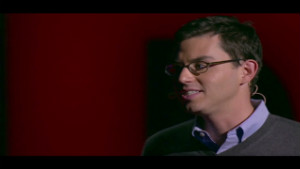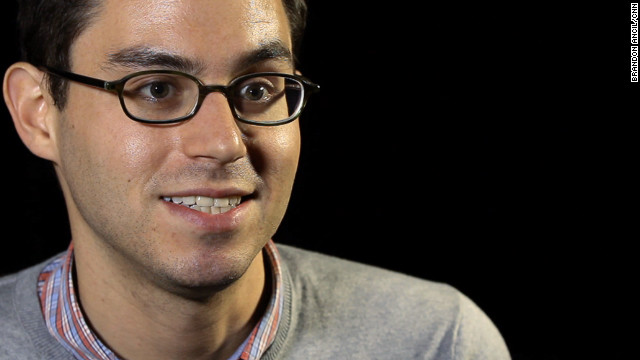How to train your mind to remember anything - CNN.com
How to train your mind to remember anything - CNN.com
 Feats of memory anyone can do
Feats of memory anyone can do


 © 2013 Cable News Network. Turner Broadcasting System, Inc. All Rights Reserved.
© 2013 Cable News Network. Turner Broadcasting System, Inc. All Rights Reserved.
How to train your mind to remember anything
updated 6:03 AM EDT, Mon June 11, 2012
STORY HIGHLIGHTS
- Josha Foer observed the 2005 USA Memory Championship and won it in 2006
- He says you can teach yourself to remember a lot of information effectively
- One of the keys is to associate a word or a fact with other things you remember, Foer says
- Foer: "If you want to make something memorable, you first have to make it meaningful"
Editor's note: Joshua Foer is a writer and the author of "Moonwalking With Einstein: The Art and Science of Remembering Everything." In 2005, he attended the USA Memory Championship as an observer. After learning to train his memory using ancient techniques, he came back to the same contest a year later and won it. Foer spoke at the TED2012 conference in March. TED is a nonprofit dedicated to "Ideas worth spreading," which it makes available through talks posted on its website.
(CNN) -- Once upon a time, the idea of having a trained, disciplined, cultivated memory was not nearly so strange a notion as it might seem to be today. People invested in their memories, in laboriously furnishing their minds.Over the last few millennia, we've invented a series of technologies -- from the alphabet to the printed book to the photograph to the iPhone -- that have made it easier and easier for us to externalize our memories and essentially outsource this fundamental human capacity.
These technologies have made our modern world possible, but they've also changed us. They've changed us culturally, and I would argue that they've changed us cognitively. Having little need to remember anymore, it sometimes seems as if we've forgotten how.
One of the last places where you still find people passionate about the idea of a disciplined, cultivated memory is a strange contest held each spring in New York called the USA Memory Championship. Contestants compete to see who can memorize the most lines of poetry, the most names of strangers, even the most random digits in five minutes.
 Feats of memory anyone can do
Feats of memory anyone can do The sport of competitive memorizing is driven by a kind of arms race. Each year someone comes up with a new technique to remember more stuff more quickly, forcing the rest of the field to play catch up.
Three-time World Memory Champion Ben Pridmore invented a memory system, which he alone has mastered, that allowed him to memorize the precise order of 28 shuffled packs of playing cards in one hour. He used a similar trick to memorize the precise order of 4,140 random binary digits in half an hour. Even more incredible than the mere fact of this feat is that this is not an innate talent, but rather a skill he taught himself.
While there are lots of different tricks for remembering better, all of the techniques used in these memory contests ultimately come down to a concept that psychologists refer to as elaborative encoding. And it's well illustrated by a strange kind of forgetfulness that psychologists have dubbed the "Baker/baker paradox."
The paradox goes like this:
A researcher shows two people the same photograph of a face and tells one of them that the guy is a baker and the other that his last name is Baker. A couple of days later, the researcher shows the same two subjects the same photograph and asks for the accompanying word.
The person who was told the man's profession is much more likely to remember it than the person who was given his surname. Why should that be? Same photograph. Same word. Different amount of remembering.
When you hear that the man in the photo is a baker, that fact gets embedded in a whole network of ideas about what it means to be a baker: He cooks bread, he wears a big white hat, he smells good when he comes home from work.
The name Baker, on the other hand, is tethered only to a memory of the person's face. That link is tenuous, and should it dissolve, the name will float off irretrievably into the netherworld of lost memories. (When a word feels like it's stuck on the tip of the tongue, it's likely because we're accessing only part of the neural network that "contains" the idea, but not all of it.) But when it comes to the man's profession, there are multiple strings to reel the memory back in.
Even if you don't at first remember that the man is a baker, perhaps you get some vague sense of breadiness about him, or see some association between his face and a big white hat, or maybe you conjure up a memory of your own neighborhood bakery. There are any number of knots in that tangle of associations that can be traced back to his profession.
As I describe in my book "Moonwalking With Einstein", the art of remembering better in memory competition -- and to remembering better in everyday life -- is about figuring out how to turn capital "B" Bakers into lowercase "b" bakers.
It's about taking information that is lacking in context, lacking in meaning and figuring out a way to transform it so that it makes sense in the light of all the other things that you have floating around in your mind. Pridmore uses a complicated technique to memorize decks of playing cards and strings of binary digits, but we can all take advantage of the Baker/baker paradox.
If you want to make something memorable, you first have to make it meaningful.
Follow @CNNOpinion on Twitter.
Join us at Facebook/CNNOpinion.
The opinions expressed in this commentary are solely those of Joshua Foer.
We recommend
From around the web
Part of complete coverage on
updated 2:22 PM EST, Sat January 19, 2013
David Gergen says the president came out fighting after the election and is gaining ground, but is his strategy wise?
updated 11:24 AM EST, Sun January 20, 2013
Bob Greene says the song that marks presidential entrances is usually played, not sung. One reason: Can you imagine the GOP belting out lyrics that sing the president's praises?
updated 10:30 AM EST, Sun January 20, 2013
The second inaugural address is always more difficult than the first, says Julian Zelizer
updated 9:09 AM EST, Fri January 18, 2013
John Avlon says Republicans have trouble attracting minority voters but they surpass Democrats among senators, governors
updated 3:01 PM EST, Fri January 18, 2013
Howard Kurtz says Lance Armstrong utterly failed to win sympathy or reveal his soul; Oprah demonstrated her media clout
updated 11:04 AM EST, Fri January 18, 2013
Why did we fall for the Te'o tale? Mike Downey says we love a good yarn, like that of Manti Te'o and his doomed girlfriend
updated 10:50 AM EST, Fri January 18, 2013
Roxanne Jones says Obama has begun a much-needed conversation. Congress should come up with common-sense solutions to curb gun violence
updated 11:22 AM EST, Fri January 18, 2013
Nicolaus Mills remembers Martin Luther King Jr.'s Voting Rights March in 1965. Mills says voter suppression efforts, though not as crude, exist today
updated 12:32 AM EST, Sat January 19, 2013
Frida Ghitis says the hostage crisis in Algeria and the war in Mali are dark signs that militants are on the rise in North Africa
Get the latest opinion and analysis from CNN's columnists and contributors.
updated 9:52 AM EST, Fri January 18, 2013
Gregory Maguire says we've lost the reality coordinates that would have made us question the Manti Te'l story
updated 7:06 PM EST, Thu January 17, 2013
Cristina Traina says kids on farms work long hours at often dangerous jobs for little pay. Why aren't the regulations for them the same as for kids in retail and service industries?
updated 5:41 PM EST, Thu January 17, 2013
Terri Francis' young relative was shot and killed in 2003, but she avoided the issue of gun violence. Now, she realizes it's up to all of us, not just politicians, to shape a safer future
updated 10:39 AM EST, Sun January 20, 2013
Dean Obeidallah asks: Instead of a Bible, why doesn't the president place his hand on the U.S. Constitution, which he is swearing to uphold?
updated 3:43 PM EST, Thu January 17, 2013
Children living in orphan institutions need world leaders who would not use them as political pawns, says Laura Jean.
updated 10:25 AM EST, Wed January 16, 2013
David Nathan responds to comments to his column urging that pot be legal.
updated 5:42 AM EST, Wed January 16, 2013
David Frum says conservatives such as Ann Coulter who say guns are only a problem in minority communities are wrong.
updated 3:48 AM EST, Wed January 16, 2013
David Weinberger says the world has rarely seen an intellect as voracious as that of the innovator who embodied what's best about the Net.
Home | Video | CNN Trends | U.S. | World | Politics | Justice | Entertainment | Tech | Health | Living | Travel | Opinion | iReport | Money | Sports
Tools & widgets | RSS | Podcasts | Blogs | CNN mobile | My profile | E-mail alerts | CNN shop | Site map























0 Comments:
Post a Comment
Subscribe to Post Comments [Atom]
<< Home